Technological University Dublin (TU Dublin) is offering a new entrepreneurial course specifically for those living with disability. After a successful pilot which took place in September 2021, the course is set to begin on 21 September.
Co-founded by the Open Doors Initiative (an organisation which works to create opportunities for marginalised members of Irish society through training, education and employment), Irish banking institution AIB has committed to fully funding the course for a three-year period.
The 12-week programme aims to equip participants with the skills to not only become self-employed, but to overcome the challenges they will likely face while developing a business.
Unique challenges
Thomas Cooney is a professor of entrepreneurship at TU Dublin and is director of TU Dublin’s Institute of Minority Entrepreneurship. He specialises in research and training for marginalised and minority communities. He designed this course in response to the lack of customised business supports for disabled entrepreneurs.
“My argument has consistently been that people from marginalised communities face additional disadvantages that the general population doesn’t experience,” he says. “People argue that if [disabled people] want to start their own business, they can just use existing supports – but that fails to recognise the distinctive challenges they face.”
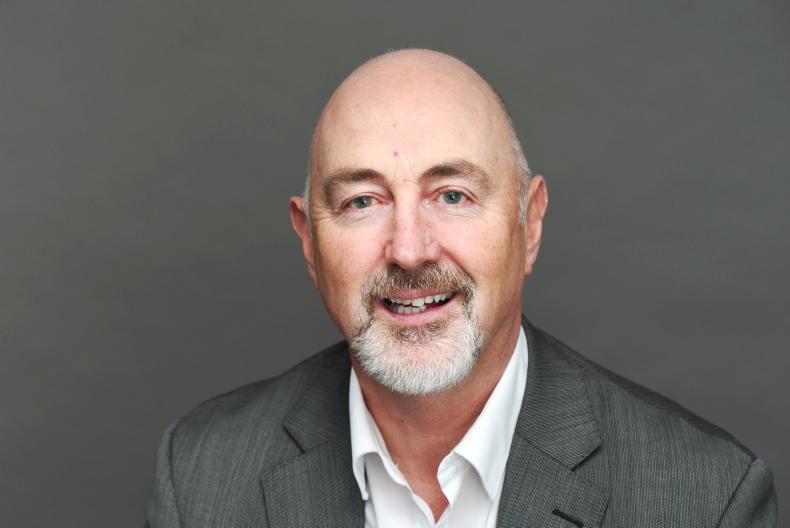
Professor Thomas Cooney is director of TU Dublin’s Institute for Minority Entrepreneurship. He specialises in research and training for marginalised and minority communities.
Thomas explains that there are logistical, educational and bureaucratic roadblocks present, which leave most disabled people without a safety net to fall back on if their business idea doesn’t work out.
“People are concerned that they will lose their welfare support – particularly their medical card. If someone sets up their own business and they do modestly well or struggle, they’re in danger of impoverishing themselves. And that’s a risk they just can’t take.”
While there is no real solution to these problems without policy change at a Government level, the course includes specialised lectures on topics like social welfare benefits, which educate participants on their rights and available supports. The idea is to empower attendees as much as help them on the road to being an entrepreneur.
Course features
During the course, each participant is assigned a business mentor through the Local Enterprise Office network. Mentoring sessions, lectures and course work are entirely virtual and lectures are recorded to allow participants to learn at their own pace. Since the course is virtual, travel to Dublin isn’t necessary and participants can learn from anywhere in the Republic.
Each week, a different disabled entrepreneur is featured as a guest speaker. Thomas says they are a key feature of the course as they describe their experiences in a real and honest way.
“[These speakers] provide role models and show that a pathway – or at least the notion of a pathway – exists,” he says. “One of the surprise outcomes from the [pilot] course was that even people who didn’t start their own business told us it enhanced their self-confidence. They felt better about themselves and what was possible.”
Niamh Malone:
Ailim Healing
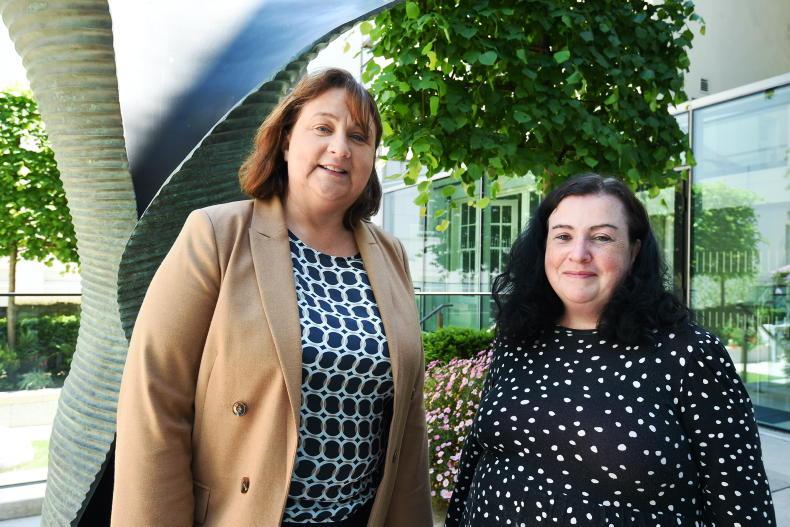
Left: Anne Rabbitte TD, Minister of State with responsibility for Disability; Right: Niamh Malone, Founder of Ailim Healing / Maxwell Photography
Stroke survivor Niamh Malone participated in the pilot course, which ran from September to December in 2021.
During the programme, she developed the idea for her mental wellness startup Ailim Healing. Her background in healthcare (she previously worked as a clinical nurse specialist) and her own struggles with mental health led her to develop an online educational platform aimed at easing social anxiety in neurological patients.
Her patient-led programme combines a personalised blend of interactive webinars, workshops, animation, visual communications, videos, and e-journals. The ultimate aim of her business is to empower patients to be their own advocate and recognise when people in their lives may be acting in ways detrimental to their wellbeing.
“[Prior to the course,] I couldn’t get anywhere trying to get the business up and running – [potential investors] don’t see the disability; they couldn’t see how my business would help people,” she explains. “There is very little support in the community for people living with a disability after a stroke – family can take over and not listen to what the person needs or wants.
“I saw this course as an opportunity to explore my ideas and build up a business – to see if it was sustainable. I have a hidden disability with my stroke, but also with my mental health. A lot of what I used to see as a nurse specialist – I realised I didn’t really have a clue [what patients were experiencing]. My disability has given me a whole new perspective.”
Alternative approach
As a result of her stroke, Niamh lives with a communication impairment known as aphasia. This makes certain tasks – such as writing – difficult. During the course, participants use a programme called SimVenture Validate, which is a user-friendly business model platform. It enables learners to map and share ideas in a structured way.
“It breaks everything down to the smallest bit and then you build it up,” Niamh explains. “The course was wonderful – it was focused on fitting into the market and being sustainable and it gave me the confidence to push forward.”
Niamh knew her business idea was original, but the development support she received from TU Hothouse (the university’s innovative hub) confirmed its originality. As a result, they helped patent her idea and she received funding to build her host website.
“Healthcare organisations will buy the educational platform from me. General practitioners will provide the link to a patient, where they can download the course for free. I estimate that it will be out in the market by February 2023,” she explains.
Niamh would recommend the course “to anyone who has an idea going around in their head. There’s plenty of ideas out there – it’s just about taking that little step forward.”
Learn more at ailimhealing.com
There are 20 places available on this course and successful participants will earn a Level 6 certification within the Irish National Framework of Qualifications. They will also acquire five ECTS credits. Successful applicants will be living with a disability and must have a business idea. Applications will be accepted until 4 September and the course will begin on 21 September. Learn more by visiting tudublin.ie or email thomas.cooney@tudublin.ie.
Read more
Technological university series: South East Technological University
Careers: Taking a closer look at Technological University Dublin
Technological University Dublin (TU Dublin) is offering a new entrepreneurial course specifically for those living with disability. After a successful pilot which took place in September 2021, the course is set to begin on 21 September.
Co-founded by the Open Doors Initiative (an organisation which works to create opportunities for marginalised members of Irish society through training, education and employment), Irish banking institution AIB has committed to fully funding the course for a three-year period.
The 12-week programme aims to equip participants with the skills to not only become self-employed, but to overcome the challenges they will likely face while developing a business.
Unique challenges
Thomas Cooney is a professor of entrepreneurship at TU Dublin and is director of TU Dublin’s Institute of Minority Entrepreneurship. He specialises in research and training for marginalised and minority communities. He designed this course in response to the lack of customised business supports for disabled entrepreneurs.
“My argument has consistently been that people from marginalised communities face additional disadvantages that the general population doesn’t experience,” he says. “People argue that if [disabled people] want to start their own business, they can just use existing supports – but that fails to recognise the distinctive challenges they face.”

Professor Thomas Cooney is director of TU Dublin’s Institute for Minority Entrepreneurship. He specialises in research and training for marginalised and minority communities.
Thomas explains that there are logistical, educational and bureaucratic roadblocks present, which leave most disabled people without a safety net to fall back on if their business idea doesn’t work out.
“People are concerned that they will lose their welfare support – particularly their medical card. If someone sets up their own business and they do modestly well or struggle, they’re in danger of impoverishing themselves. And that’s a risk they just can’t take.”
While there is no real solution to these problems without policy change at a Government level, the course includes specialised lectures on topics like social welfare benefits, which educate participants on their rights and available supports. The idea is to empower attendees as much as help them on the road to being an entrepreneur.
Course features
During the course, each participant is assigned a business mentor through the Local Enterprise Office network. Mentoring sessions, lectures and course work are entirely virtual and lectures are recorded to allow participants to learn at their own pace. Since the course is virtual, travel to Dublin isn’t necessary and participants can learn from anywhere in the Republic.
Each week, a different disabled entrepreneur is featured as a guest speaker. Thomas says they are a key feature of the course as they describe their experiences in a real and honest way.
“[These speakers] provide role models and show that a pathway – or at least the notion of a pathway – exists,” he says. “One of the surprise outcomes from the [pilot] course was that even people who didn’t start their own business told us it enhanced their self-confidence. They felt better about themselves and what was possible.”
Niamh Malone:
Ailim Healing

Left: Anne Rabbitte TD, Minister of State with responsibility for Disability; Right: Niamh Malone, Founder of Ailim Healing / Maxwell Photography
Stroke survivor Niamh Malone participated in the pilot course, which ran from September to December in 2021.
During the programme, she developed the idea for her mental wellness startup Ailim Healing. Her background in healthcare (she previously worked as a clinical nurse specialist) and her own struggles with mental health led her to develop an online educational platform aimed at easing social anxiety in neurological patients.
Her patient-led programme combines a personalised blend of interactive webinars, workshops, animation, visual communications, videos, and e-journals. The ultimate aim of her business is to empower patients to be their own advocate and recognise when people in their lives may be acting in ways detrimental to their wellbeing.
“[Prior to the course,] I couldn’t get anywhere trying to get the business up and running – [potential investors] don’t see the disability; they couldn’t see how my business would help people,” she explains. “There is very little support in the community for people living with a disability after a stroke – family can take over and not listen to what the person needs or wants.
“I saw this course as an opportunity to explore my ideas and build up a business – to see if it was sustainable. I have a hidden disability with my stroke, but also with my mental health. A lot of what I used to see as a nurse specialist – I realised I didn’t really have a clue [what patients were experiencing]. My disability has given me a whole new perspective.”
Alternative approach
As a result of her stroke, Niamh lives with a communication impairment known as aphasia. This makes certain tasks – such as writing – difficult. During the course, participants use a programme called SimVenture Validate, which is a user-friendly business model platform. It enables learners to map and share ideas in a structured way.
“It breaks everything down to the smallest bit and then you build it up,” Niamh explains. “The course was wonderful – it was focused on fitting into the market and being sustainable and it gave me the confidence to push forward.”
Niamh knew her business idea was original, but the development support she received from TU Hothouse (the university’s innovative hub) confirmed its originality. As a result, they helped patent her idea and she received funding to build her host website.
“Healthcare organisations will buy the educational platform from me. General practitioners will provide the link to a patient, where they can download the course for free. I estimate that it will be out in the market by February 2023,” she explains.
Niamh would recommend the course “to anyone who has an idea going around in their head. There’s plenty of ideas out there – it’s just about taking that little step forward.”
Learn more at ailimhealing.com
There are 20 places available on this course and successful participants will earn a Level 6 certification within the Irish National Framework of Qualifications. They will also acquire five ECTS credits. Successful applicants will be living with a disability and must have a business idea. Applications will be accepted until 4 September and the course will begin on 21 September. Learn more by visiting tudublin.ie or email thomas.cooney@tudublin.ie.
Read more
Technological university series: South East Technological University
Careers: Taking a closer look at Technological University Dublin






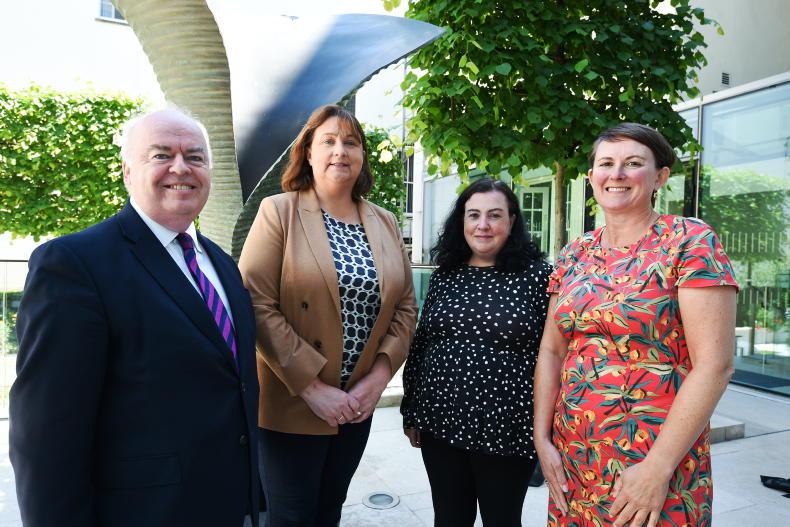
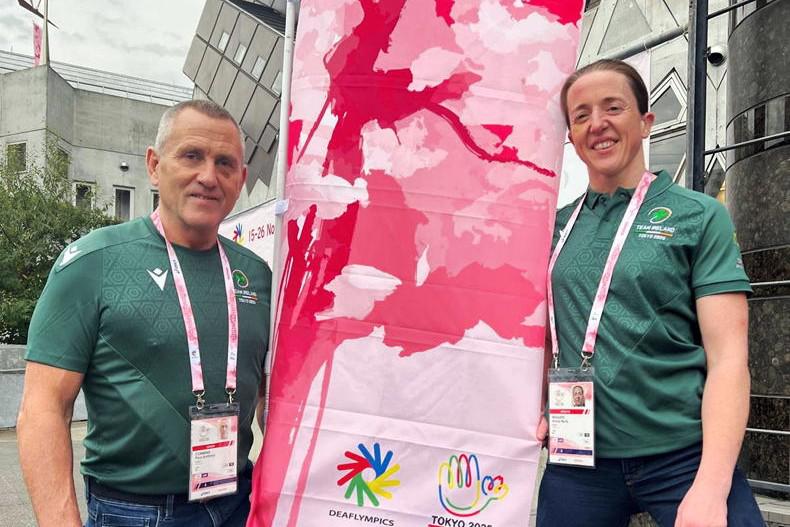
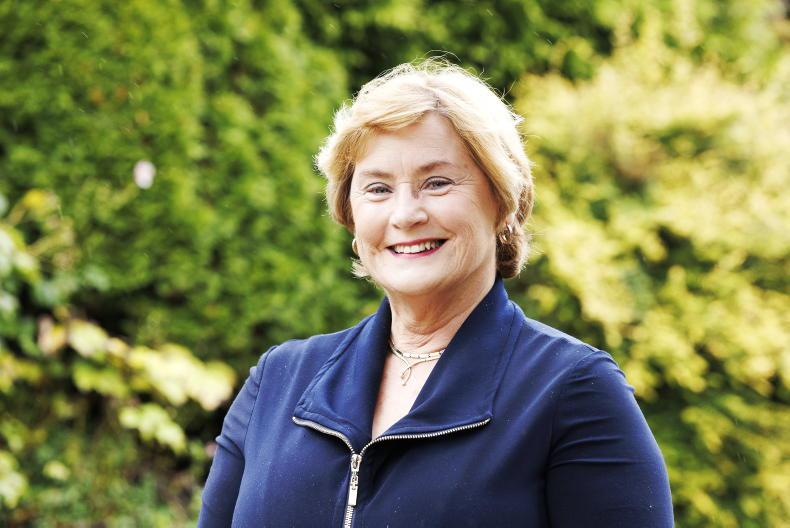
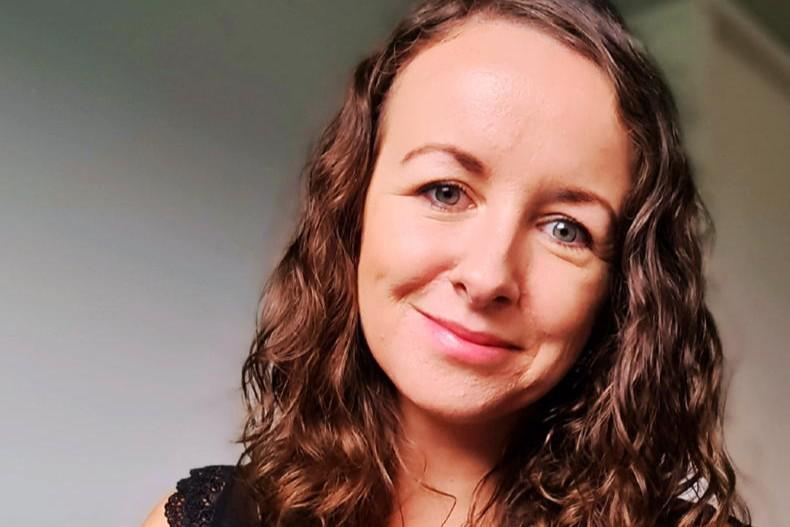

SHARING OPTIONS